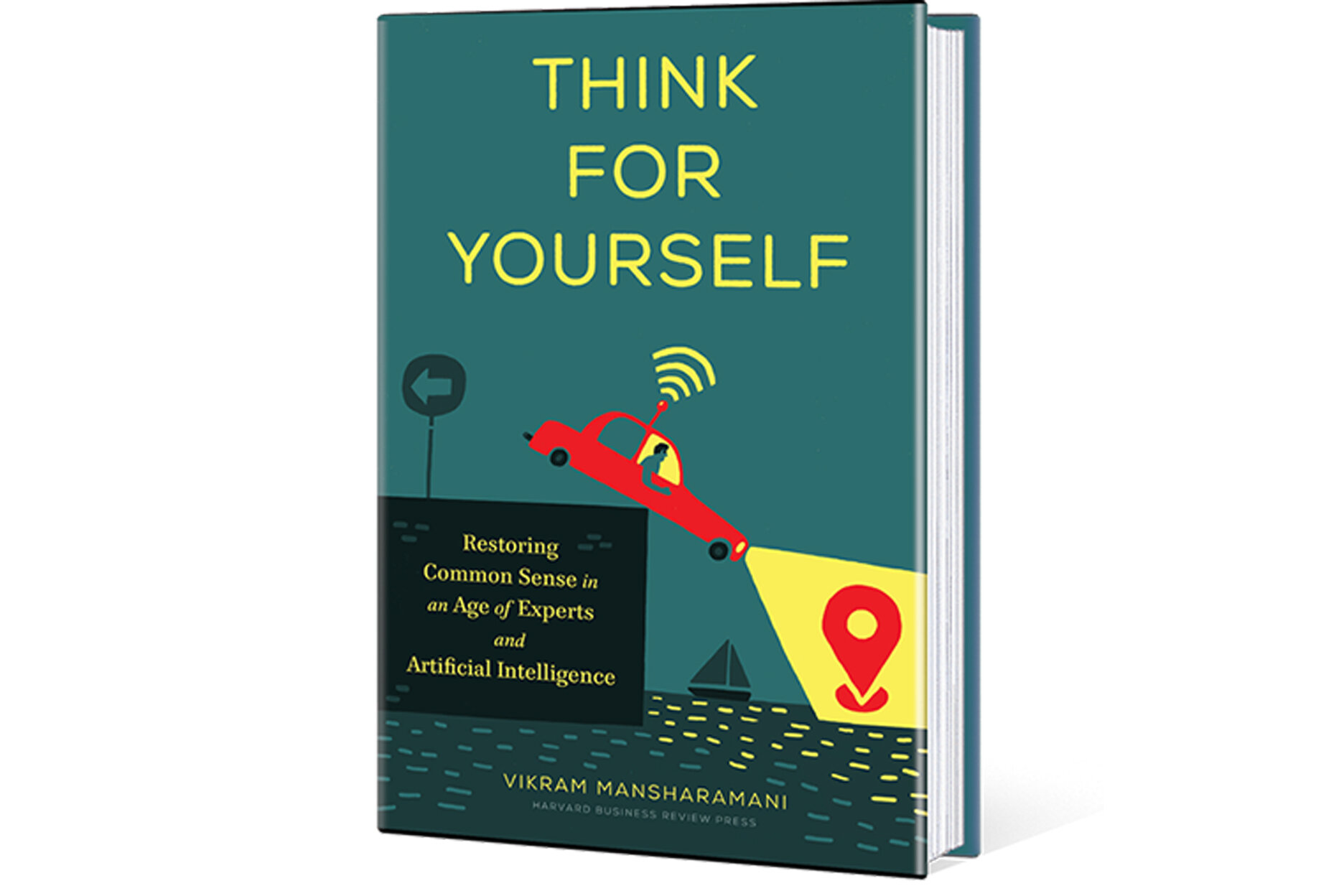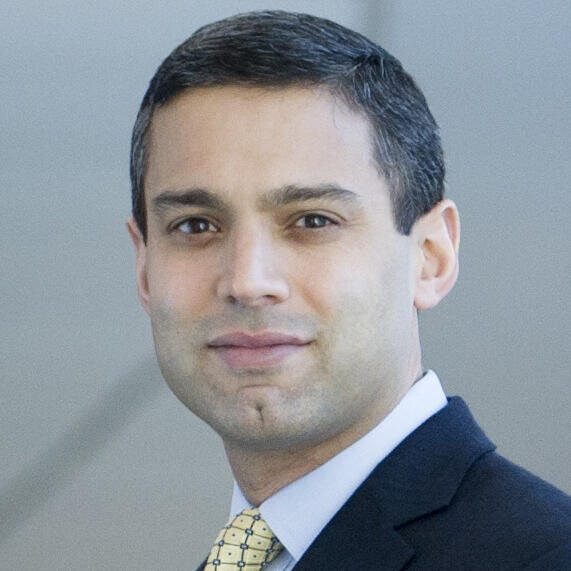Thinking For Yourself: Intellectual Self Reliance in an Hyper-Connected World
Fundamentally, self-reliance in the twenty-first century is about thinking for yourself. And even though it was written in 1841, the wisdom of Ralph Waldo Emerson’s essay on this topic rings as true today as it did then. Consider the following quote, taken from “Self-Reliance”: “a man should learn to detect and watch that gleam of light which flashes across his mind from within, more than the lustre of the firmament of bards and sages.” We could easily replace “bards and sages” with “experts and technology” and the quote would feel timely and relevant.
Which brings me to the topic of my recent book - our relationship with experts and technologies in a time of overwhelming information. For many of us, the data deluge we suffer through on a daily basis has paralyzed us. To cope, we regularly outsource our thinking to narrow specialists and deep experts who promise to save us from the dreaded fear of missing out (FOMO). Often, we blindly follow their guidance. We feel powerless to debate their suggestions and often feel inadequate to even ask questions.
The experts and technologies that offer salvation, however, are fundamentally constrained and, in certain circumstances, they may be structurally flawed. The problem stems from the deep and narrow focus that tends to accompany specialized expertise - it inhibits an understanding of the whole situation or the context in which decisions are being made. By turning to experts, technologies, and rules, we end up ceding control of our focus and our thinking to those who are unable to appreciate our decision context. As our self-reliance skills atrophy, we become dependent and blindly follow expert guidance.
The result is often sub-optimal outcomes driven by dynamics transpiring in the shadows of an expert’s spotlight.
This dynamic eventually reaches a tense tipping point. Eggheads and experts are derided as unable to understand our situation, leading political and business leaders to call for their fall: “Enough with the experts!” Complete, blind deferral to expertise is soon replaced with complete dismissal of the unaccountable technocrats. Yet over time, this approach too leads to poor outcomes as opinions and pseudo-knowledge run roughshod over technical know-how and insight. Eventually, the pendulum swings back towards complete deferral to those who know more. The devotion to depth, dismissed in favor of breadth, returns with a vengeance.
My recent book Think For Yourself suggests an alternative, one that harnesses the power of experts and technologies without giving up autonomy. The approach I suggest we adopt is one that keeps experts on tap, not on top.
How do we do this?
To begin, acknowledge that each and every perspective (including our own) is biased and incomplete. Therefore, it makes sense to employ multiple perspectives and to triangulate insights through several lenses. Why not consult multiple experts rather than one? Sure, second opinions can cost us time and money, but when the stakes are high, the effort is worthwhile.
Secondly, ask questions. Play devil’s advocate with your advisors and inquire if it might be worth considering alternatives. Seek to understand the operating assumptions that underpin any suggested course of action, and more importantly, supplement the expert’s generic knowledge with your personal specific context.
Third, imagine failure and how it may come about. Conduct a “pre-mortem” analysis (something academics refer to as “prospective hindsight”) to explore possible stumbling blocks that might lead to a disappointing outcome. The very act of considering pitfalls will make you less likely to fall into them because you will have primed yourself to think about how to avoid them.
Ultimately, however, we must restore our autonomy. We need to retake control, which means we must lead with clear outcomes in mind. Expert and technological input is essential, even if not sufficient. We should think of ourselves as an artist preparing a mosaic. Experts provide tiles. But the job remains ours to utilize those tiles as needed in the process of forming our image. Fundamentally, we need to think for ourselves.
In an age of experts and artificial intelligence, critical thinking skills and the expression of moral judgments are more important than ever. Thinking for ourselves can inoculate us from many ills and may even help us defend against the influence that big tech is exerting upon our autonomy, something HBS Professor Shoshana Zuboff has called “surveillance capitalism.”
There’s a scene in the movie The Iron Lady in which an aging Margaret Thatcher is with her doctor, who asks how she is feeling. She responds with “People don’t think anymore; They feel. . . . One of the great problems of our age is that we are governed by people who care more about feelings than they do about thoughts and ideas. Now thoughts and ideas, that interests me. . . . Ask me what I’m thinking!”
So the doctor asks, “What are you thinking, Margaret?”
She responds with what was, in Lady Thatcher’s actual life, one of her most memorable quotes: “Watch your thoughts for they become words; watch your words for they become actions; watch your actions for they become habits; watch your habits for they become your character. And watch your character for it becomes your destiny. What we think, we become.”
And when thinking about how to manage the experts and technologies that influence our thinking, it might make sense to think of being an orchestra conductor. Wolfgang Heinzel, former conductor of the Deutsche Philharmonie Merck (the Merck Orchestra) and the subject of executive leadership courses, has decades of experience in bringing together the capabilities of various specialists to successfully produce inspired music. As he explains, “A maestro cannot play all the instruments,” and therefore needs to rely on his string, woodwind, brass, and percussions performers. But in speaking of his team, Heinzel notes “They know their instruments, they know how to play their parts . . . but now I have to bring it all together.”
If you stop and think about the role of the conductor, I think it really is all about conscientiously leading a group of specialists to integrate the inputs of others into something neither the conductor nor the players could produce on their own.
Dots are everywhere. The real, sustainable know-how we must all develop is the ability to connect them. To lift up our heads and notice the context. And to constantly question the underlying assumptions that we retain as “true,” thinking for ourselves independently and not blindly relying on the opinions of others. Doing so, in my opinion, is modern day common sense. For as EO Wilson, the legendary biologist has said: “[w]e are drowning in information, while starving for wisdom. The world henceforth will be run by synthesizers, people able to put together the right information at the right time, think critically about it, and make important choices wisely.”
The future belongs to those who think for themselves.
About the Author:
Vikram Mansharamani is a Lecturer at the Harvard John A. Paulson School of Engineering and Applied Sciences and the author of THINK FOR YOURSELF: Restoring Common Sense in an Age of Experts and Artificial Intelligence (HBR Press, 2020).


